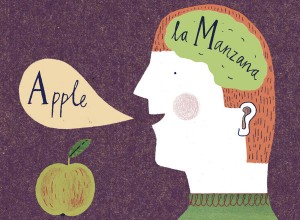In Burawoy’s article, he introduces the reflexive approach to ethnography which explores the idea of actively engaging in one’s surroundings. Burawoy focuses on this approach to explore the practice of extended method, where the observer is immersed their environment and applies theories (I will be using a postcolonial perspective, as well) to understand how events that occurred on a macro level can be related back to how it affects the particular environments on a micro level.
In my case, by immersing myself in an environment with children and their nannies, I have discovered how post-colonialism had affected the use of language(s) of myself, the children in the program and the nannies who attended them. I was better able to relate with the nannies because I am a product of one country occupying another for a long period of time: growing up on an American military base in Japan, I experienced splitting my life between two cultures. The nannies I spoke to were from India, which was colonized by Britain decades ago.
In Stephanie’s Creative Playtime program, children around the ages of 2 – 3 come visit with an adult – usually a parent or a nanny. As the room began to fill up with fair-skinned, blond haired children, I also noticed the adults who were bringing them in: usually dark-skinned and dark-haired. I entered the observation with a presupposition that mothers will walk in with their children. Little did I know that non-Canadian nannies were a commonplace. This dissonance was unnerving. I spoke with two nannies who were from India, who spoke to their children in Hindi as well as (British) English. Even if this may be a tiny detail, I realized that if India had not been colonized by the British decades ago, the possibility of them speaking English with that particular accent may not have happened. I suspect that their language skill has greatly contributed to their transition to Vancouver where immigrants (Asians especially) have concentrated in the urban areas.
While the immersion brought shared feelings, it also made me aware of my position in the greater environment of the neighborhood/Vancouver. I grew up on an American military base where English (especially Ebonics) was the main language. The usage of Ebonics has affected the way I communicate with people, even to this day. In a city where Black Americans are a rarity, Ebonics is difficult to put into practice without first wondering whether it may sound too direct and perhaps derogatory. My particular experience on the base primarily with non-White individuals has affected my speech, thus influencing the way I form bonds and connect with others. Had the military occupation not occurred as the result of the War, my bilingualism most definitely would not have developed in such a way. Because I had experience embodying two cultures (thus two languages) I was able to see the similarities with the nannies and the differences, as well.
References:
http://graphics8.nytimes.com/images/2012/03/18/sunday-review/18GRAY/18G
RAY-articleLarge-v2.jpg

